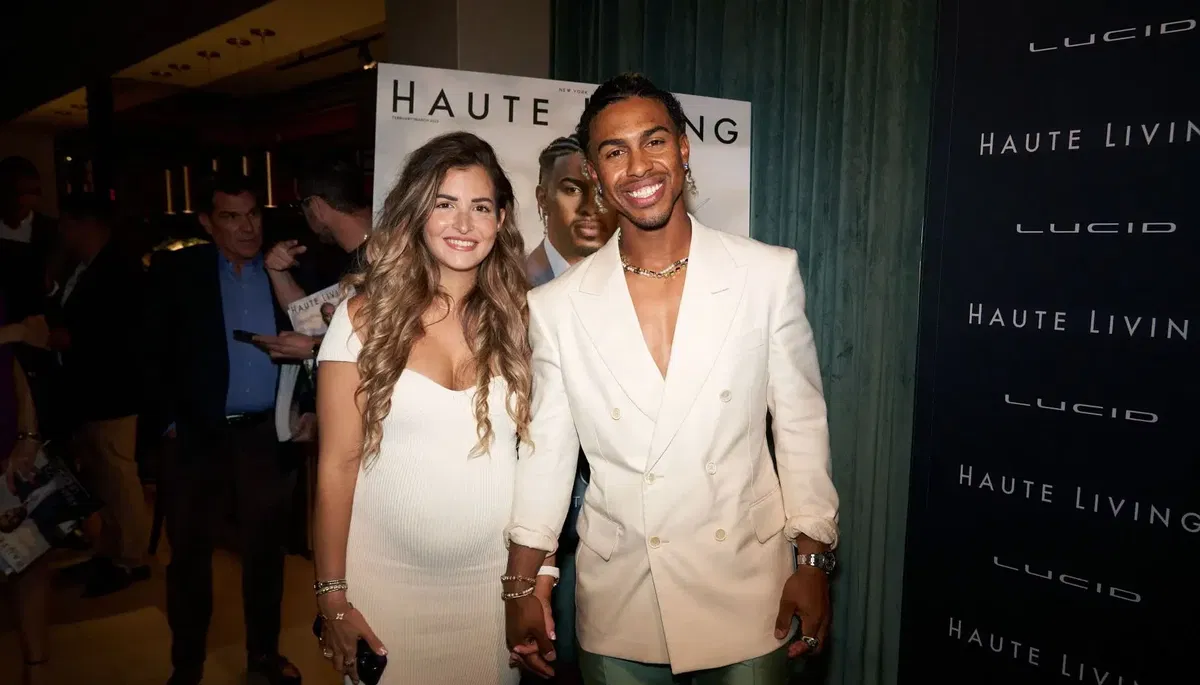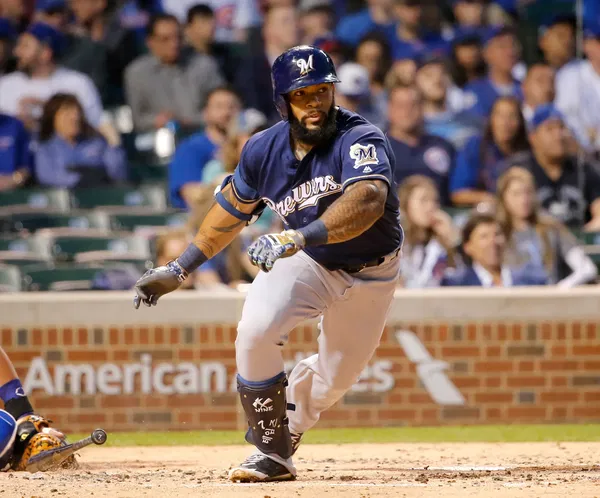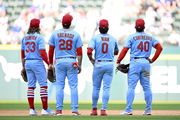
Getty
Credit: Getty

Getty
Credit: Getty
Some stadiums hand out hot dogs; others, apparently, dish out death threats. In a league where booing is tradition and abuse is trending, MLB finds itself toeing a dangerous line. When Francisco Lindor’s wife starts making statements more sobering than a box score, it’s time to stop and listen. New York and Philly may love their baseball, but they’re earning a reputation no fan base should be proud of.
Watch What’s Trending Now!
These stories are surfacing now, but imagine who got away before. The Ketel Marte incident cracked it open, and now the flood won’t stop. The recent one to open up was Katia Lindor, Francisco Lindor’s wife. She talked about how she received threats after some poor performance by Francisco Lindor on the field. After this, ex-MLB star Eric Thames has come out and talked about the fan culture in New York and Philadelphia.
In a recent interview, Thames talked about his time with the Brewers and how they are better than the fans in New York and Philadelphia. He said, “That place, and the vibe there, is second to none… People just want to have fun and watch a good game… It’s not like Philly or New York, where you are getting death threats.”
ADVERTISEMENT
Fan culture in New York and Philadelphia has always been intense, but lately, it’s turned toxic. Once known for passionate loyalty, these cities now battle reputations built on vitriol and abuse. What used to be booing from the bleachers has evolved into threats in the inbox. Players aren’t just heckled—they’re hunted online, with families often caught in the crossfire.
Francisco Lindor’s wife, Katia Lindor, recently revealed she received death threats over her husband’s performance. “I’m usually quick to speak up for the marginalized, not so much for the privileged, for obvious reasons… I’ve received death threats over my husband’s on-field performance… Frustration is valid. Dehumanization is not. Let’s be better,” she explained on Instagram. Not criticism—death threats. In Philly, Bryce Harper was booed in his first month as a $330 million star. Just last year, Yankees slugger Joey Gallo deleted his social media after relentless personal attacks. This isn’t tough love; it’s unchecked hostility disguised as fandom.
ADVERTISEMENT

ADVERTISEMENT
MLB cannot afford to shrug this off like a bad call at first base. The league, franchises, and player unions must build safeguards, not just for players, but for their families. Whether through stronger moderation, stricter stadium policies, or public accountability campaigns, action is overdue. Pretending it’s “just part of the game” only fuels the culture further.
Teams need to step up, too, because silence screams complicity. When a player’s child asks, “Who wants to hurt us?” as Lance McCullers Jr. shared, something is broken. A player’s performance slump should never put his family in fear. Clubs must publicly support their players and pursue abusers with legal consequences.
MLB is built on stats, but some numbers don’t make it to the box score. The growing number of threats, hate messages, and traumatic fallout should set off every alarm. Fans may buy tickets, but that doesn’t buy the right to dehumanize. It’s time MLB reminded everyone: this is a game, not a battlefield.
ADVERTISEMENT
MLB thinks sports bettors are the reason for the abuse of players
There was a time when fans brought peanuts and Cracker Jacks to the ballpark—now they bring rage and receipts. MLB, the institution, once obsessed with box scores and batting averages, is now tallying death threats and Venmo requests. As the league scrambles for control, one thing is becoming clear: some of today’s “fans” aren’t rooting for teams—they’re betting on blood.
MLB is facing a storm that’s no longer confined to the diamond. As sports betting explodes, players are now dodging more than fastballs—they’re ducking digital hate. Christian Walker called it “scary” and admitted this behavior is “part of professional sports now.” The abuse has gone from booing in the stands to vitriol in private messages and public threats.
ADVERTISEMENT
Logan Webb has seen the shift firsthand, saying, “You just cost me money” is the new heckle. Bettors harass players for strikeout totals and fantasy points in real time. These aren’t disgruntled fans—they’re angry investors demanding emotional refunds. From live stadium bets to death threats, the line between fandom and fanaticism is gone.
Top Stories
Red Sox Fans Left Reeling as Diamondbacks Close In on Stealing $275M Cardinals Star

Cody Bellinger–Bo Bichette Uncertainty Grows as Scott Boras & Other Agents’ Market Misread Complicates Blue Jays’ Stance

Who Are Kyle Tucker’s Parents? All about Mike Tucker and Lisa Fernandez

Craig Breslow Told to Copy Dodgers’ Mookie Betts Masterstroke as Bo Bichette Market Spirals Out of Control

Yankees To Go After Cubs Shortstop After Cody Bellinger Reunion Blows in Brian Cashman’s Face: Bronx Veteran

MLB has tried fighting back with reporting hotlines and banning extreme offenders. But the issue runs deeper than policy—it’s cultural and financial. Prop bets and live wagering have warped what it means to support a team. If baseball wants to protect its players, it must first protect the spirit of the game.
What began as a game of inches has become a game of invoices. MLB isn’t just managing rosters anymore—it’s managing rage with a paper trail. If this is what fan engagement looks like in the betting era, maybe the game isn’t broken—just bet on by the wrong people. Until then, players will keep fielding fastballs by day and fury by night. Batter up, bankrolls out.
ADVERTISEMENT
ADVERTISEMENT
ADVERTISEMENT
ADVERTISEMENT

